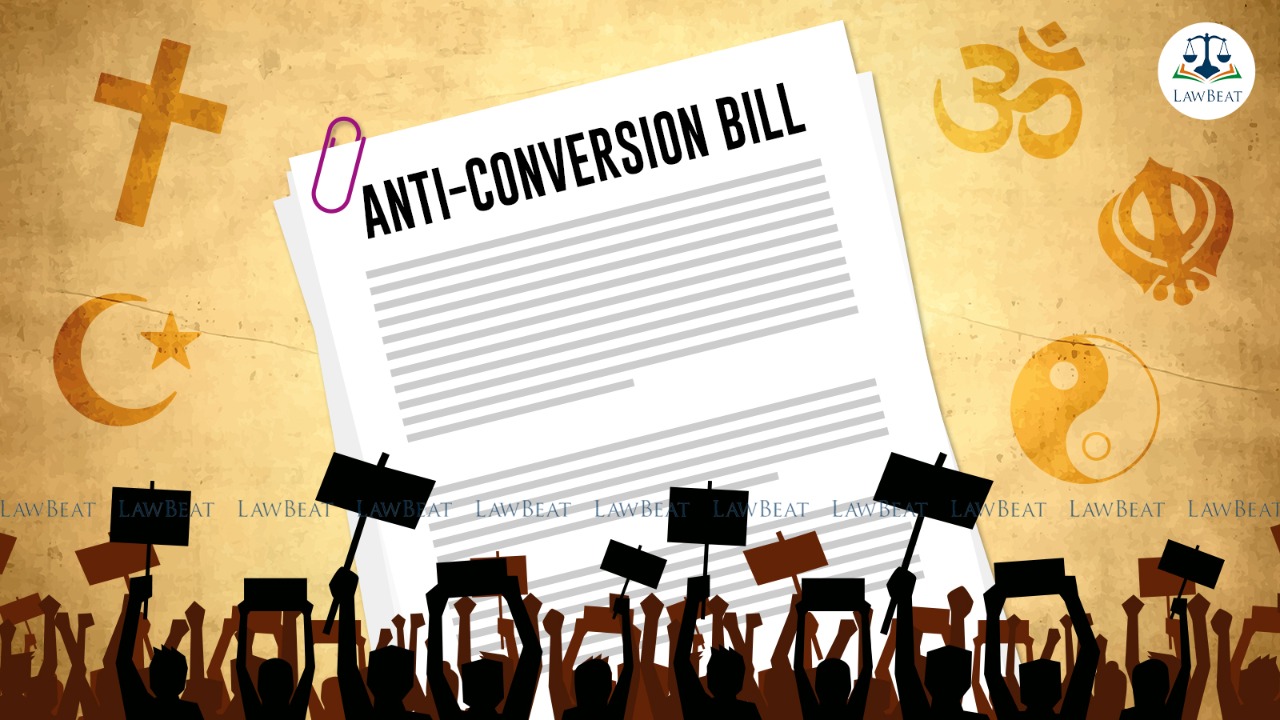Karnataka's new anti-conversion Bill tabled before the state legislative assembly

On Tuesday Karnataka Home Minister Araga Jnanendra tabled the Karnataka Protection of Right to Freedom of Religion Bill, 2021, known simply as the ‘anti-conversion Bill’.
So what is the anti-conversion Bill?
According to Section 3 of the Bill, religious conversion by use or practice of misrepresentation, force, undue influence, coercion, allurement, or by any fraudulent means or by any of these means or by promise of marriage, is prohibited.
However, if any person reconverts to his immediate previous religion the same shall not be deemed to be a conversion under this Act.
Under Section 4 of the Bill any person associated with the converted person including his parents, brother, sister or any other person who is related to him by blood, marriage or adoption or colleague may lodge a complaint of such conversion.
Further, under Section 6 any marriage which has happened with sole purpose of unlawful conversion or vice-versa by the man of one religion with the woman of another religion, either by converting himself before or after marriage or by converting the woman before or after marriage, shall be declared as null and void.
It is noteworthy that the burden of proof as to whether a religious Conversion was not affected through misrepresentation, force, undue influence, coercion, allurement or by any fraudulent means or by marriage, lies on the person who has caused the conversion and on the abettor who aids or abets such conversion.
Further, any person wanting to convert to another religion or any convertor who wants to conduct a conversion should mandatorily make a declaration 30 days in advance to the District Magistrate. Separate forms have been designed for this purpose. The Bill also demands declaration after the fact of religious conversion.
Under the Bill, individuals converting others via “unlawful” means will attract punishment of three to five years in jail and a fine of Rs 25,000. If the converted person is a minor, woman, a person belonging to the Scheduled Castes and Scheduled Tribes or “of unsound mind”, the punishment will be 3 to 10 years in prison, with a fine of Rs 50,000. Those organising mass conversions “unlawfully” face 3 to 10 years in jail, with fine of Rs 1 lakh. It is to be noted here that the bill puts women, minors and “persons of unsound mind” in the same category.
The Bill demands that the ‘accused’ pay Rs 5 lakh compensation to the victim of a forced conversion, excluding the fine imposed by the courts. Repeat offences will attract a sentence of five years in jail and a fine of Rs 2 lakh.
The Bill has been slated as unconstitutional. Karnataka Congress president D.K. Shivakumar even tore up copies of the bill, deeming it “unconstitutional” and accusing the government of sneaking the Bill into the House without discussing it in the Business Advisory Committee or listing it as business of the House for Tuesday.
Thousands of people took to the streets on Wednesday to protest the Bill, while more than 40 organisations held a massive protest in the city of Bengaluru.
Bangalore Archbishop Peter Machado, who was addressing the crowd stated that the state government is trampling on constitutionally guaranteed right to freedom of religion and privacy.
“Karnataka is a progressive state in the country and has to give out a message to others that it is open to privacy, dignity, and human rights,” he added.
